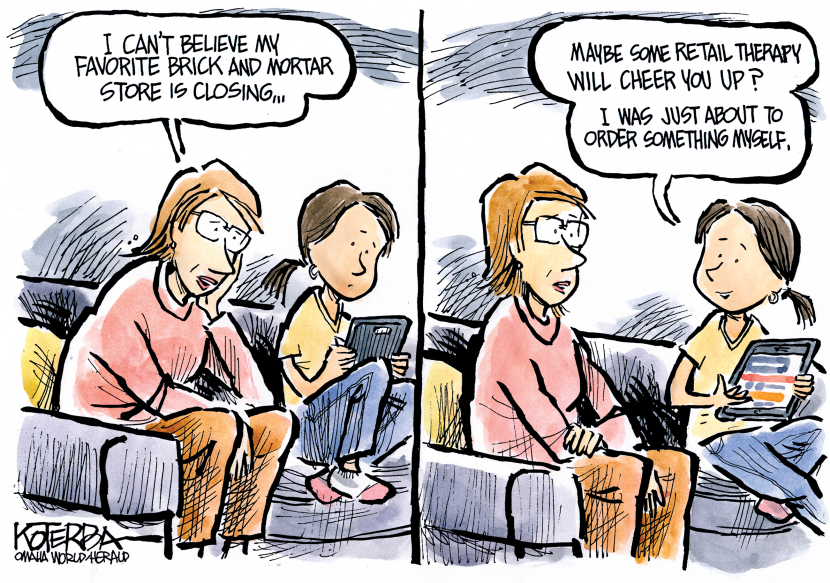
Subscribers Only Content
High resolution image downloads are available to subscribers only.
Not a subscriber? Try one of the following options:
OUR SERVICES PAY-PER-USE LICENSINGFREE TRIAL
Get A Free 30 Day Trial.
No Obligation. No Automatic Rebilling. No Risk.
It seems that in the age of abbreviated communication, where “r u ok?” passes for a sentence, and KFC is a place that used to be called Kentucky Fried Chicken, the name Dunkin’ Donuts is simply too big a mouthful.
Come January, the Massachusetts-based doughnut purveyor will be known as just Dunkin’.
The move is not unlike what happened a few years back when the world’s largest seller of pizza decided to remove the key word from its name. Domino’s Pizza became Domino’s.
I’ve always believed it makes good sense for a company’s name to at least hint at what it does. United Parcel Service communicates more than UPS. But WW, what the heck is that? It’s the new slimmed-down name of Weight Watchers.
At least these well-established operations waited until they were successful to begin slashing their names into a single meaningless word or string of letters.
Start-ups, however, won’t wait. A friend of mine got a job at a firm in San Francisco that calls itself Plaid. I assumed it was a clothing manufacturer or perhaps a supplier to the bagpipe industry. Plaid, it turns out, is a tech company that enables applications to connect with users’ bank accounts.
I Googled Plaid and found that it was originally named Silver. It later changed its name to Rambler, before deciding that what would really resonate best in the banking community was Plaid.
Speaking of Google, its name was crafted from the word “googol” – the number 1 followed by 100 zeros – which supposedly conveyed a whole lot of searching. Oddly, founders Larry Page and Sergey Brin originally favored the name BackRub, which apparently had to do with checking back links and not – I repeat not – a service that the bosses provided for each other.
A classic case in the corporate name game occurred in Britain six years ago when a publisher of yellow-page directories called Yell inexplicably changed its name to Hibu. The Daily Mail wrote: “From Yell to Hibu? Online directory service rebrands itself (and even chief executive admits new name is meaningless).”
Speaking of bizarre names in publishing, Tribune Publishing, owners of the Chicago Tribune and other papers, made the baffling decision a few years back to change its name to Tronc. After two years of confusion and ridicule, the old name was restored.
But in the world of meaningless monikers, nothing says “company that sells many products and delivers them right to your door” like “Amazon.” Believe it or not, when founder Jeff Bezos started the company in 1994 he called it Cadabra.
A few months later, Mr. Bezos thought about renaming his company Relentless, but after flipping through a dictionary he settled on Amazon.
If pressed into change-for-change-sake, as happened at Dunkin’, would Amazon ever switch back to its original name? Go online to Relentless.com and see for yourself.
–
A list of Peter Funt’s upcoming live appearances is available at www.CandidCamera.com.
Peter Funt is a writer and speaker. His book, “Cautiously Optimistic,” is available at Amazon.com and CandidCamera.com.Copyright2018 Peter Funt. Columns distributed exclusively by Cagle Cartoons, Inc., newspaper syndicate.